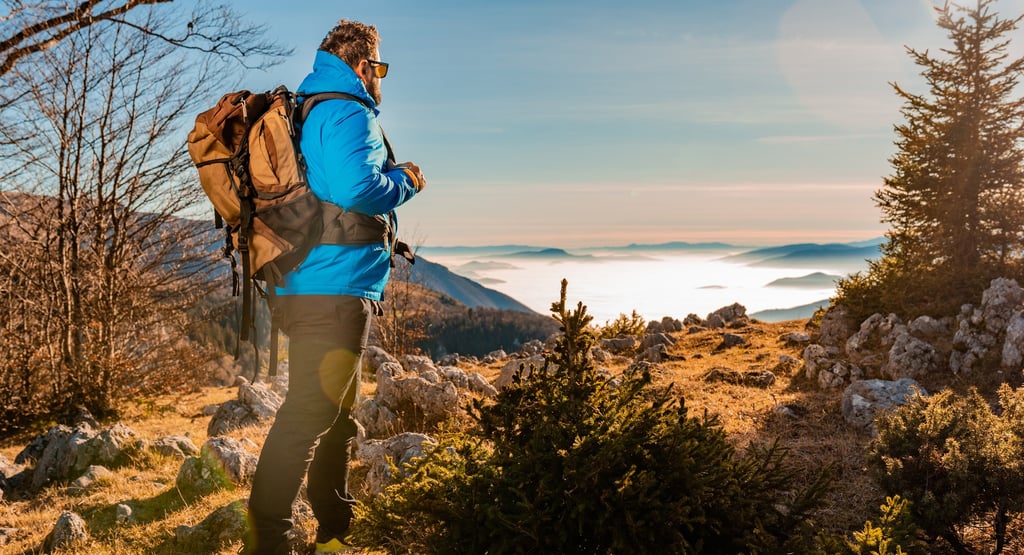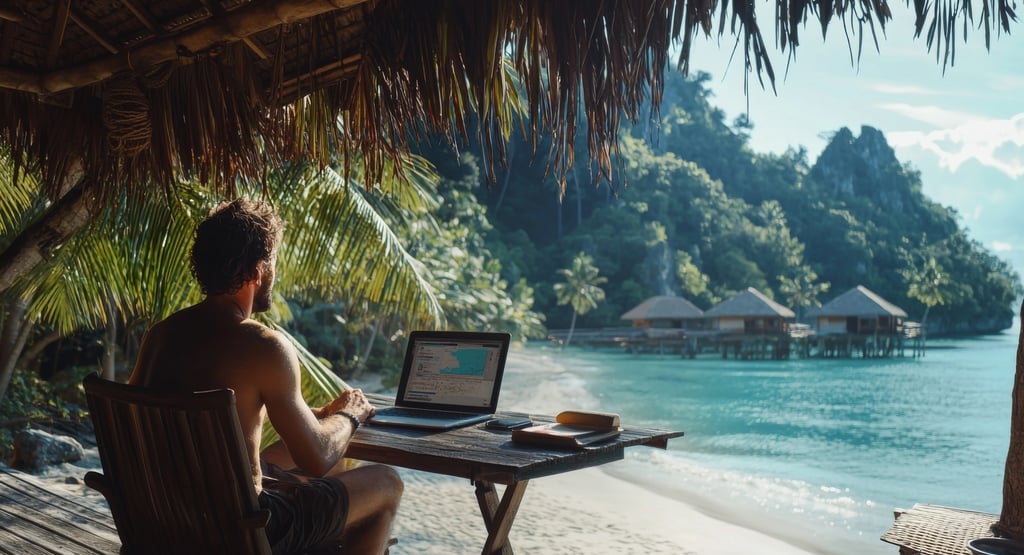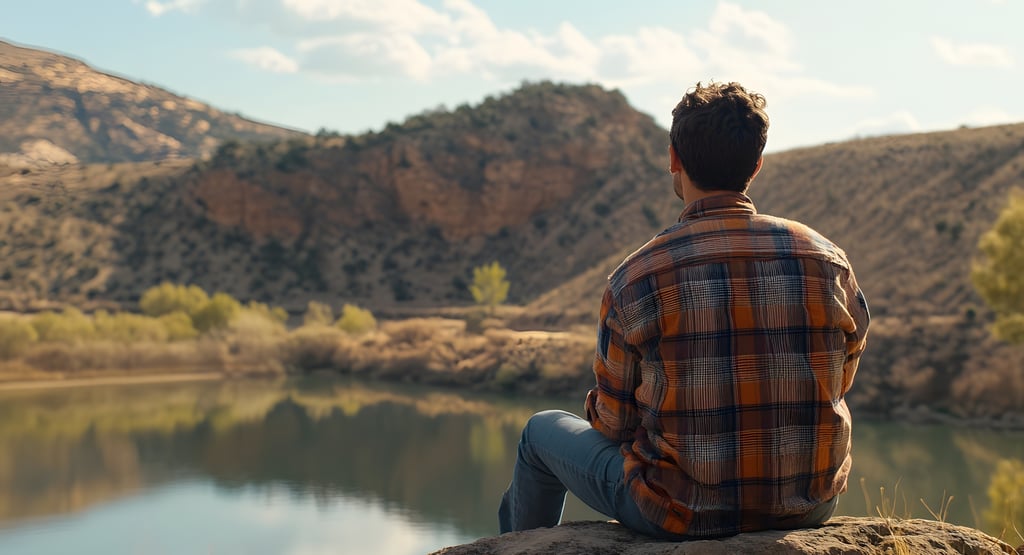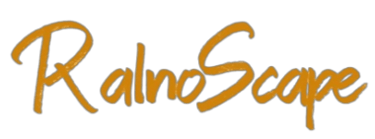I Quit My Job to Travel for a Year — Here’s What I Wish I Knew Before I Left
Over the past year, I made the life-changing decision to quit my job and commence on a journey around the world. In this post, I’ll share key insights and practical advice that I wish I had known before leaving, to help you prepare better and avoid common pitfalls. From financial planning to managing expectations, understanding these aspects will make your travel experience smoother and more fulfilling. Whether you're contemplating a similar adventure or already in the planning stages, my firsthand experience offers valuable guidance to support your journey.
5/7/20256 min read


Preparing for the Journey
To commence on a year-long travel adventure, thorough preparation is important. I found that organizing my plans, researching destinations, and arranging logistics ahead of time made the transition smooth and stress-free. Taking the time to map out my itinerary, health precautions, and necessary documentation saved me countless headaches on the road. Proper preparation allows you to focus on enjoying the journey rather than scrambling to fix unforeseen problems.
Financial Planning
Beside setting a realistic budget, I carefully tracked my expenses and saved aggressively in the months leading up to my departure. Understanding the cost of living in different countries helped me allocate funds appropriately. I also set up emergency savings and considered travel insurance to protect my finances. You’ll want to get clear on how much you need and how you plan to sustain yourself throughout the year to avoid surprises.
Leaving Your Job
Between giving notice professionally and wrapping up my responsibilities, leaving my job required careful timing and communication. I made sure to leave on good terms by finishing projects and offering to train colleagues on my duties. You should also plan your exit strategy to maintain positive relationships for future networking opportunities.
The process of leaving my job involved more than just handing in my resignation letter. I had to navigate conversations with my manager and HR, organize my workload to ensure a smooth handover, and contemplate how this break would affect my career trajectory. Preparing for these challenges helped me leave confidently, knowing I had handled everything responsibly and respectfully.
Choosing Destinations
One of the biggest decisions I faced was selecting where to go. If you want your trip to be fulfilling, think about what excites you most—whether it’s culture, adventure, nature, or relaxation. Don’t just follow popular trends; choose places that align with your interests and travel style. This helps you create meaningful experiences and avoid feeling disconnected or rushed.
Researching Locations
Below is where your planning kicks into gear—I dove deep into climate patterns, visa requirements, and local customs. Exploring forums and travel blogs gave me real insights beyond the basics. This groundwork helped set my expectations right and equipped me to adapt smoothly once I arrived.
Safety Considerations
Before finalizing any destination, I carefully evaluated safety factors. I checked travel advisories, health risks, and geopolitical stability. Understanding potential hazards early meant I could prepare smartly and choose accommodations and transport with security in mind.
It’s easy to overlook some risks when enthusiasm takes over, but I made a point of contacting locals and expats to get current perspectives on safety. Their firsthand experiences painted a clearer picture than official websites alone. Staying informed and flexible proved imperative for peace of mind throughout my journey.
Travel Essentials
You need to be prepared with the right items to make your year of travel smooth and enjoyable. From practical clothing to important documents, having the vitals sorted saves you time and stress. I learned that thoughtful preparation helps you face unexpected challenges better and lets you focus on the experience. Organize your gear with versatility and ease of use in mind, and prioritize comfort and safety during your adventures.
Packing Tips
Against overpacking, I advise you to choose lightweight, multi-purpose clothing and gear. Pack only what you’ll realistically use and layer for changing climates. Here’s what I packed and found most effective:
Quick-dry clothes and comfortable shoes
A compact travel first aid kit
Reusable water bottle and travel utensils
Essential toiletries in travel-sized containers
This approach helped me stay mobile and reduced the burden of heavy luggage.
Technology and Gadgets
About gadgets, I discovered a few key devices make your trip easier and safer. Don't overload your bags with unnecessary tech; focus on items that boost convenience and communication.
At the heart of my travel tech kit is a reliable smartphone with a global SIM or eSIM for connectivity almost everywhere. I also carry a portable charger, universal adapter, and noise-canceling headphones. A small power bank keeps my devices running all day during long transit times. Additionally, I use cloud storage to back up my important documents and photos, ensuring my memories and data stay safe throughout the journey.
Finding Accommodation
All through my travels, securing a comfortable and affordable place to stay was a constant priority. I learned that planning ahead can save both money and stress but remaining flexible also opens unexpected opportunities. Each destination offers diverse lodging options, so understanding what suits your budget and travel style is important to make the most of your experience.
Hostels vs. Hotels
Any choice between hostels and hotels depends on your preferences for privacy, cost, and social interaction. Hostels are budget-friendly and great for meeting other travelers, often featuring shared spaces and communal activities. Hotels provide more comfort and privacy but usually at a higher price. Weighing these factors helped me decide where I wanted to stay depending on the vibe and length of each stop.
Alternative Lodging Options
After exploring traditional accommodations, I found alternative lodging like vacation rentals, house-sitting, and home exchanges can offer unique, local experiences. These options often provide more space, kitchen facilities, and a chance to live like a local, which enriched my journey beyond what standard lodging could offer.
It’s worth diving deeper into alternative lodging because they often blend affordability with authenticity. Platforms like Airbnb or trusted house-sitting websites allowed me to stay in neighborhoods where tourists usually don’t go, giving me a richer connection to the communities I visited. If you want to stretch your budget and immerse yourself more fully, consider these options early in your planning.
Staying Healthy on the Road
Unlike traveling for short vacations, launching on a year-long journey demands that you prioritize your health consistently. I learned that maintaining a balanced routine, staying hydrated, and adapting to new environments are necessary to avoid common travel-related illnesses. Taking preventive measures like vaccinations and carrying a basic first-aid kit saved me from many avoidable setbacks. Your body is your most important travel companion—invest in it wisely to keep your adventures enjoyable and uninterrupted.
Mental Health Considerations
By dedicating time to check in with my emotions regularly, I managed to stay mentally resilient during long periods away from home. Traveling solo or in unfamiliar settings can sometimes trigger feelings of loneliness or anxiety, so I made it a point to connect with fellow travelers, practice mindfulness, and keep channels open with loved ones. Tuning into your mental state and knowing when to seek support can transform the experience, making your journey more fulfilling and balanced.
Managing Physical Health
Managing my physical health on the road required a flexible approach to exercise and nutrition. I didn’t always have access to gyms, so I adapted by incorporating bodyweight exercises and long walks into my daily routine. Eating local foods taught me to embrace diverse diets, but I also kept staples with me to maintain nutritional balance. Balancing indulgence with healthy choices helped me sustain my energy and stamina throughout the year.
Also, regular health check-ups or consultations with a healthcare professional before and during your trip can help you monitor any ongoing conditions or receive advice tailored to the regions you visit. I found that staying informed about local healthcare facilities and travel insurance coverage added an extra layer of security, allowing me to focus on the journey rather than worrying about what-ifs.
Cultural Experiences
Many aspects of travel come alive through cultural experiences, which enrich your journey beyond the usual tourist paths. I learned that immersing yourself in local traditions, festivals, and daily life deepens your understanding of each place and its people. This kind of engagement opens doors to unexpected friendships and stories you won’t find in guidebooks, making your travels truly transformative and memorable.
Engaging with Local Communities
Experiences with local communities allowed me to see the world from perspectives very different from my own. Whether through volunteering, attending neighborhood events, or just striking up conversations, I gained insights and connections that shaped my travel in meaningful ways. Engaging genuinely with locals moves your journey from sightseeing to shared human experience.
Trying New Cuisines
Around the globe, food offers a passport to culture. I found that trying new cuisines wasn’t just about tasting delicious meals; it was about understanding heritage and social customs. Each dish told a story, revealing the history and values of the people who created it.
The diversity in flavors and preparation styles across countries amazed me. Beyond well-known dishes, I sought out street food and family recipes to fully appreciate each culture’s culinary artistry. Embracing unfamiliar foods expanded my palate and highlighted the importance of openness and curiosity when exploring a new place.
Conclusion
Hence, quitting my job to travel for a year taught me invaluable lessons that I wish I had understood beforehand. I realized the importance of thorough financial planning, embracing flexibility, and staying connected with your support system. You should prepare for unexpected challenges and be open to personal growth throughout your journey. By approaching your adventure with realistic expectations and a proactive mindset, you can make the most of every experience and create memories that will last a lifetime.




Contact us
Copyright © 2025. Ralnoscape All rights reserved.
Destinations
Resources


Follow us
This website uses affiliate links which may earn a commission at no additional cost to you
